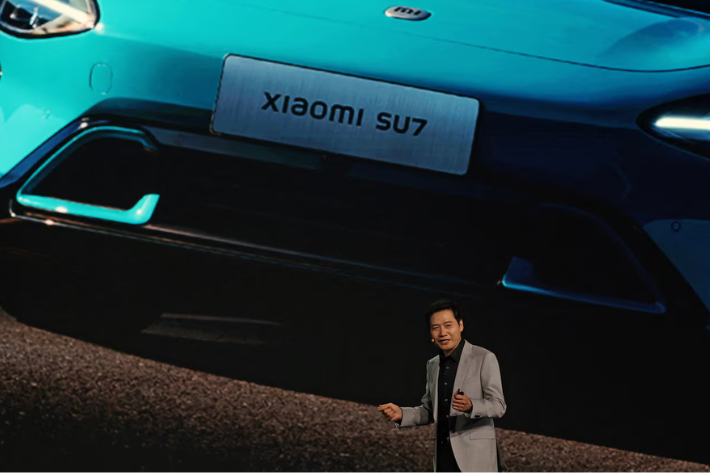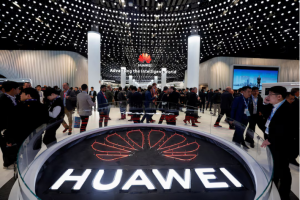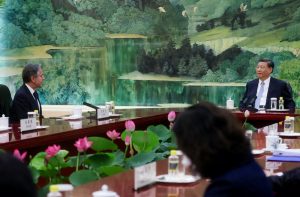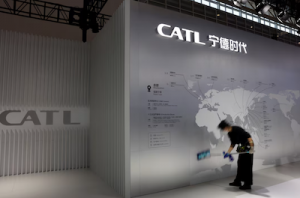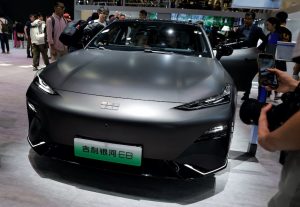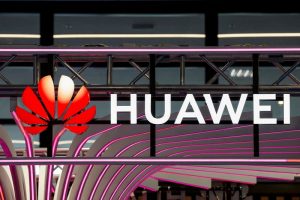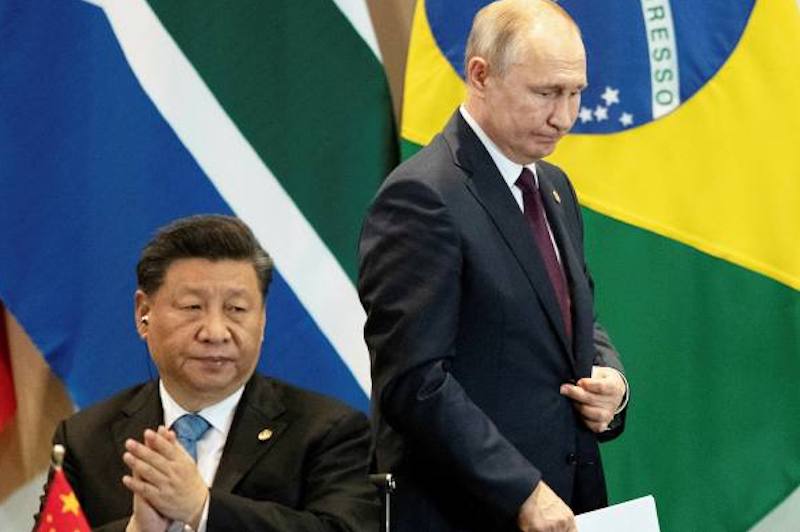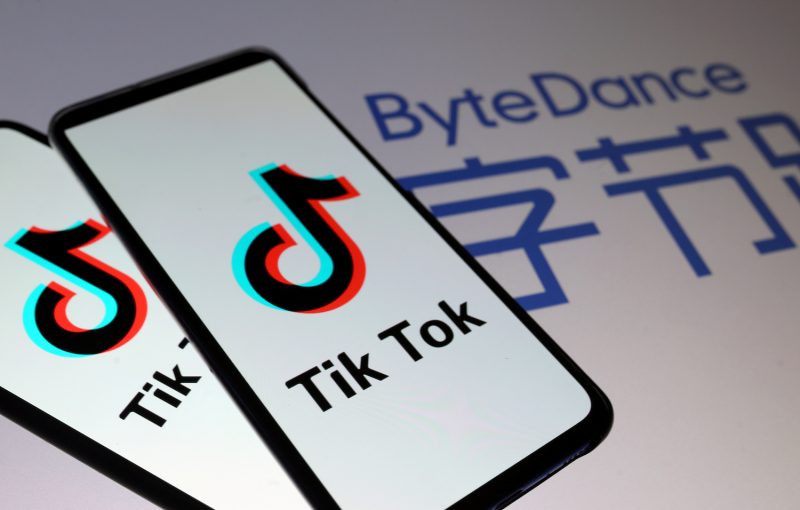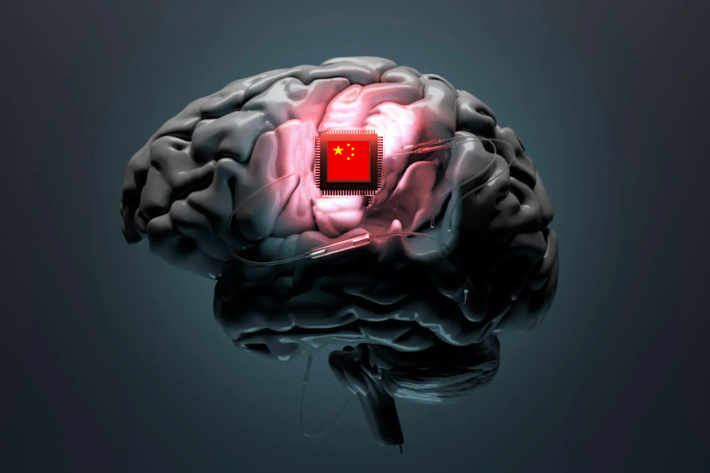Xiaomi co-founder and CEO, Lei Jun, was once called China’s answer to Steve Jobs as he took his company from a scrappy startup to an electronics giant known for its smartphones.
Now, with the launch of a much-hyped electric car, Lei is taking on US rival Tesla’s Elon Musk.
54-year-old Lei took the stage in Beijing on Thursday to unveil Xiaomi’s SU7 — short for Speed Ultra 7 — sedan, a project three years in the making.
Also on AF: China’s BYD Delays EV Factory; Solid-State Batteries ‘Unsafe’
Fans dubbed the Xiaomi CEO “Thor” on social media, a play on his surname which means thunder in Chinese. Some commented that his outfit – a grey blazer over a black t-shirt – looked like something Musk would wear.
SU7’s launch fulfils a key ambition of Lei, who announced the company’s foray into EVs in 2021. At the time, he pledged to invest $10 billion in the auto business as “the last major entrepreneurship project” of his life.
“In the three years of developing this car, my biggest realization is that making cars is extremely difficult,” Lei said on Thursday.
“Even a giant like Apple gave up on it,” he added, referring to the iPhone-maker’s recent decision to drop its EV project.
“So today, every person who is still persevering in making cars is a hero of our time.”
‘Superior to Tesla’
In Thursday’s two-hour event – a livestream millions of Chinese tuned in to watch – Lei declared Xiaomi’s EV superior to Tesla’s Model 3.
Lei told a packed room whose attendees included the bosses of Chinese EV makers Nio and Xpeng that the standard SU7 EV model will be priced at 215,900 yuan ($29,872.02). Xiaomi plans to sell the SU7 only in China for now.
“It’s 30,000 (yuan) cheaper than the Model 3,” he said. Tesla’s Model 3 starts at 245,900 yuan in China.
He also said many of the capabilities of the SU7, which has drawn comparisons with Porsche’s Taycan and Panamera models, surpassed that of Tesla’s and Porsche’s. For example, its minimum range of 700 km beat Tesla Model 3’s 567km, Lei said.
The SU7 also uses Xiaomi’s self-developed Hyper OS as the operating system that connects EV users to its other devices, including smartphones.
Xiaomi said it had received 50,000 orders in the first 27 minutes of the SU7 going on sale. The company had not posted an updated number on Friday.
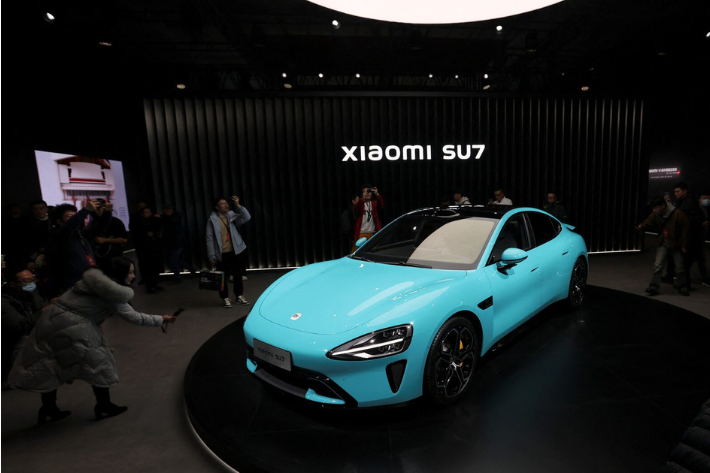
Beijing backing
Xiaomi built a Beijing factory capable of producing 200,000 cars annually before it had regulatory approval to start manufacturing in China.
State-owned automaker BAIC Group disclosed in November it would make the cars for Xiaomi – at the same Xiaomi plant.
Lei said without the support of the Beijing authorities, it would have been “impossible” to complete the car in three years, according to a transcript posted by auto blogger Chang Yan, who was among a group of Chinese reporters invited to interview Lei on Thursday.
Musk also won support from the Shanghai government when setting up the Tesla factory there. The construction of Tesla’s Shanghai plant took less than a year after it broke ground in 2019.
A test for Xiaomi
Already a household name in China, Lei’s marketing strategy for his EV borrows directly from Tesla’s Musk, said Yale Zhang, managing director at Automotive Foresight.
“One person equals an entire marketing team,” Zhang said. “With every word he says, the attention he attracts online is of a different magnitude.”
Born in central China, Lei graduated from Wuhan University with a degree in computer science before working his way up to become chief executive of software firm Kingsoft.
In 2010, he co-founded Xiaomi. By 2014, the tech startup had a valuation of $46 billion.
The Beiijng-based company has grown with the popularity of its smartphones and home appliances, beloved in Chinese households for their affordability and sleek styling.
Last year, Xiaomi launched more expensive smartphones to compete with Apple’s iPhone, but Lei’s decision to sell a sporty EV will test the company’s ability to shift to a new, premium market.
Lei has previously warned investors the EV project will lose money.
In addition, the car goes on sale during a difficult time for China’s EV market.
While the demand for EVs is slowing, new entrants are heating competition in an already crowded market. The result has been an intense price war that has pushed major players including Tesla and BYD to cut margins.
View this post on Instagram
Departure from ‘affordability’
Analysts remain split on whether Lei’s project will go beyond creating buzz to make money in a hyper-competitive EV market.
Some say it is a natural extension for the company, whose rice cookers, air purifiers and other electronics are ubiquitous in Chinese homes. Others remain wary.
“The risk is that they focus too much on the EV space and lose focus on the sectors and products that got them there,” said Tu Le, founder of consultancy Sino Auto Insights.
But working in Xiaomi’s favour is revenue generated by other businesses, Le added.
“Xiaomi has enough cash reserves to cope with any fierce competition in the next five years. And if it is possible, Xiaomi will look for ways to accumulate more cash,” Xiaomi’s Lei said on Thursday.
But the real challenge, analysts say, is that the SU7 marks a departure from the company’s image as an affordable brand.
“Can (Chinese consumers) take that leap psychologically from mass-market, cool, inexpensive consumer products and home products to premium EV?” Le of Sino Auto Insights said.
- Reuters, with additional editing by Vishakha Saxena
Also read:
Shares of China’s Xiaomi Jump on News of its First EV Launch
China’s Electric Vehicle Sales See Slow Start to The Year
Biden Orders Probe Into Data Security Risks From Chinese EVs, EU
Tesla-BYD Lock Horns in China With Deep Discounts, Incentives
CATL in Talks With Tesla on Battery Tech Licence in US: WSJ
Chinese Outbound EV Investment ‘Hit Record High in 2023’
US Auto Sector ‘Faces Extinction’ From Chinese Mexico Imports
China in Race With West to Build Best Solid-State Battery – Nikkei




